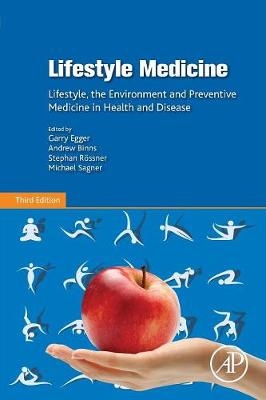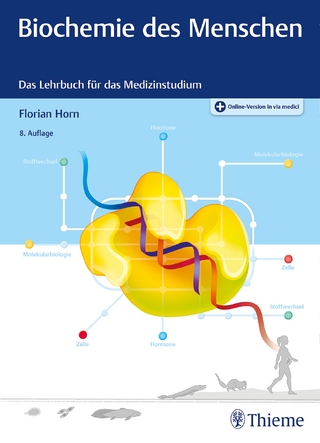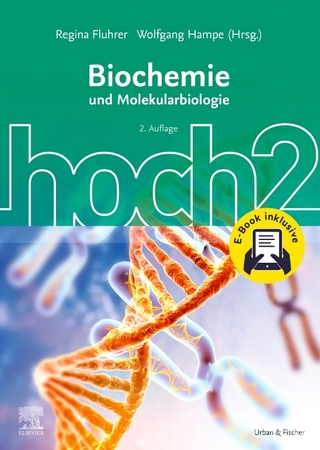
Lifestyle Medicine
Academic Press Inc (Verlag)
978-0-12-810401-9 (ISBN)
Our lifestyle choices have a profound effect on our health. As we live longer, one thing is clear: many of us will spend time living with injury and chronic illness due to our own choices. Changes in health patterns typically follow shifts in living conditions. Disease patterns have changed worldwide, from infectious to chronic diseases such as obesity, diabetes, and heart disease. This change has been so emphatic—nearly 70% of all presentations to a doctor in modern western societies are now chronic disease related—that medical services are being forced to change to accommodate this.
New chapters in this third edition explain the link between energy intake and expenditure; consider how modern technology are determinants of chronic disease; show how environmental influences, such as endocrine disruptors, influence our health; and summarize recent research on early childhood experiences and chronic disease.
Michael Sagner, MD is a medical doctor specializing in sports medicine and preventive medicine. He is also a certified fitness trainer and certified sports nutritionist. He is founding head of several international projects focused on clinical chronic disease and risk factor treatment and prevention. Michael Sagner is actively involved in scientific research in the field of preventive medicine and has developed the ‘cell to community’ approach, which aims at connecting basic research, clinical medicine and public health to address chronic diseases. His research interests are the underlying mechanisms and causes of chronic diseases and interdisciplinary approaches in clinical treatment. His research considers the complex interactions within the human body in light of a patient's lifestyle, genomics and environment. Professor Garry Egger AM MPH PhD is the Director of the Centre for Health Promotion and Research in Sydney and Adjunct Professor in Lifestyle Medicine at Southern Cross University in Northern NSW, Australia. He has worked in clinical and public health since 1972 and has been a consultant to the World Health Organization, industry, and several government organisations, as well as being involved in medical and allied health education. He is the author of thirty books, over two hundred peer reviewed scientific articles, over a thousand popular press articles and has made numerous media appearances. Dr Andrew Binns AM BSc MBBS DRCOG DA FACRRM is a general practitioner in Lismore in rural NSW, Australia. He has a special interest in lifestyle medicine and its relevance to primary care. He is Adjunct Professor with the Division of Health and Applied Sciences, Lismore Campus, Southern Cross University. He is also medical editor of GP Speak, a bi-monthly magazine for the Northern Rivers General Practice Network. Professor Stephan Rossner MD PhD was Professor of Health Behavior Research at the Karolinska Institute in Stockholm and Director of the Obesity Unit at the Karolinska University Hospital. He has worked with international obesity-related matters for more than twenty years and served as the Secretary, Vice-President, and President of the International Association for the Study of Obesity (IASO). He has published more than 500 scientific articles on nutrition and lifestyle-related matters, written more than twenty books for the lay press, appeared repeatedly in media, and promoted health as a stand-up comedian in ‘science theatre’.
Section I. Background and Basis for the role of lifestyle factors In chronic disease Prevention and Treatment 1. Introduction to the Role of Lifestyle Factors in Medicine 2. The Epidemiology of Chronic Disease 3. A “Germ Theory Equivalent Approach for Lifestyle Medicine 4. A Structure for Lifestyle Medicine 5. Everything You Wanted to Know About Motivation (But Weren’t Intrinsically Motivated Enough to Ask) 6. Self-Management in Lifestyle Medicine 7. Overweight and Obesity: The Epidemic’s Underbelly
Section II. Lifestyle and Environmental Determinants of Chronic disease 8. Nutrition for the Nondietitian 9. Fluids, Fitness, and Fatness 10. Behavioral Aspects of Nutrition 11. Physical Activity: Generic Prescription for Health 12. Physical Activity: Specific Prescription for Disease Management and Rehabilitation 13. Stress: Its Role in the S-AD Phenomenon 14. Dealing With Worry and Anxiety 15. Depression 16. Happiness and Mental Health: The Flip Side of S-AD 17. Technology-Induced Pathology: Watch (This) Space 18. To Sleep, Perchance to … Get Everything Else Right 19. Health and the Environment: Clinical Implications for Lifestyle Medicine 20. Meaninglessness, Alienation, and Loss of Culture/Identity (MAL) as Determinants of Chronic Disease 21. Preventing and Managing Injury at the Clinical Level 22. Rethinking Chronic Pain in a Lifestyle Medicine Context 23. Understanding Addictions: Tackling Smoking and Hazardous Drinking 24. Medicines: The Good, The Not So Good, and The Sometimes Overused 25. Relationships, Social Inequity, and Distal Factors in Lifestyle Medicine: Tackling the Big Determinants
Section III. Other issues for Lifestyle medicine 26. Sex and Lifestyle: Not Being Able to Get Enough of a Good Thing Because of a Lifetime of Getting Too Much of a Good Thing 27. Lifestyle and Oral Health 28. Lifestyle and Environmental Influences on Skin 29. Lifestyle-Related Aspects of Gastrointestinal Health
Section IV. The Future of Health 30. The Next Chapter: The Future of Health Care and Lifestyle Interventions
| Erscheinungsdatum | 21.04.2017 |
|---|---|
| Verlagsort | San Diego |
| Sprache | englisch |
| Maße | 152 x 229 mm |
| Gewicht | 770 g |
| Themenwelt | Sachbuch/Ratgeber ► Gesundheit / Leben / Psychologie |
| Medizin / Pharmazie ► Medizinische Fachgebiete ► Onkologie | |
| Studium ► 1. Studienabschnitt (Vorklinik) ► Biochemie / Molekularbiologie | |
| Studium ► Querschnittsbereiche ► Prävention / Gesundheitsförderung | |
| Naturwissenschaften ► Biologie | |
| ISBN-10 | 0-12-810401-5 / 0128104015 |
| ISBN-13 | 978-0-12-810401-9 / 9780128104019 |
| Zustand | Neuware |
| Informationen gemäß Produktsicherheitsverordnung (GPSR) | |
| Haben Sie eine Frage zum Produkt? |
aus dem Bereich


